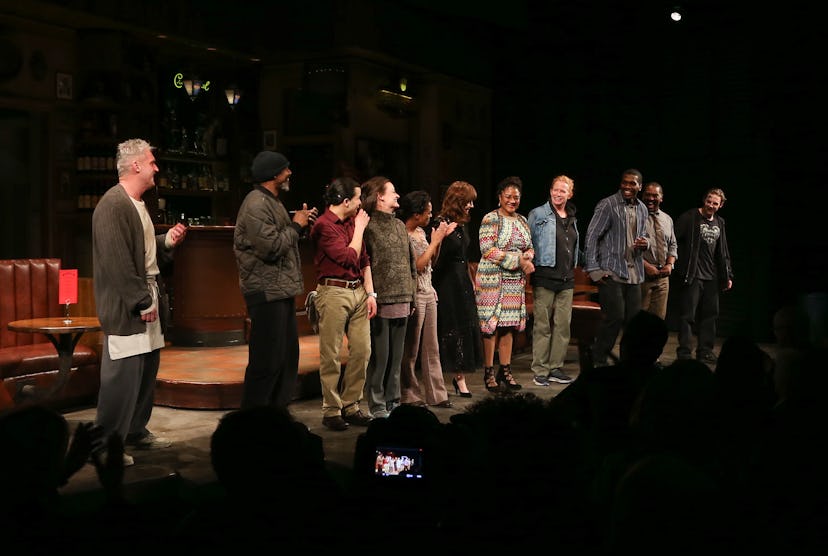Theater
The two-time Pulitzer Prize winner reflects on the year she chose art.
But at age 28, such creative decisions were far away.
Nottage was just about to leave a career at Amnesty International to pursue art full time.

Today the Brooklyn native, whos 57, resides in the Boerum Hill brownstone of her childhood.
At 28, you transitioned from working at Amnesty International to playwriting full time.
What was the climate like then?

It was a time of tremendous upheaval.
I had been working at Amnesty for about four years as the national press officer.
Issues likefemale genital mutilation,child marriage,sex trafficking, andprostitutionreally divided organizations.

A lot of organizations felt Well, these are cultural issues, not policies enforced by governments.
Is it really our responsibility as a human rights organization to intervene?
Was there a day you remember that encouraged you to embark on a career as a full-time artist?
So I closed my door and wrote a play.
That was really the transitional moment.
I wrote theshort playPoofand sent it off to a competition, which I won.
The win was a coup, but you were doing immensely important work at Amnesty.
That couldnt have been easy to leave behind.
How did you make your decision?
Its really, really scary.
I likened it to jumping off of a cliff.
Without the parachute, youre free-falling, and you just hope you have the skills to navigate the wind.
When I told her this, she said, OK.
I needed that permission.
Aside from your mother, were there women who inspired you to pioneer your own path at 28?
My grandmother, Waple Newton, one of the great raconteurs.
Theres alsoSeret Scott, who directedPoof.
Seret was this formidable woman in the theater space.
I took a great deal of inspiration from just her mere presence.
I felt like I was riding in her wake.
What were your favorite ways to hang out with friends?
Once I left my job, I finally had the opportunity to see shows.
The 90s were such an important time for artists who broke through the old guard.
Living in New York City, did you feel part of that groundswell?
Yeah, it was a really lovely time.
We were making a different kind of theater and pushing up against the establishment.
We were ready to take on that fight.
They feel very much the way we did, the sense of necessity and urgency.
Was there a phrase or mantra that kept you motivated and focused on the work you wanted to make?
As an artist, the phrase that I cling to is sustaining the complexity.
So often [in the world] we want things to be presented in a very binary way.
Its either black or white, and theres no gray area.
And as an artist, Ive always been interested in the liminal space.
This interview has been edited and condensed for clarity.